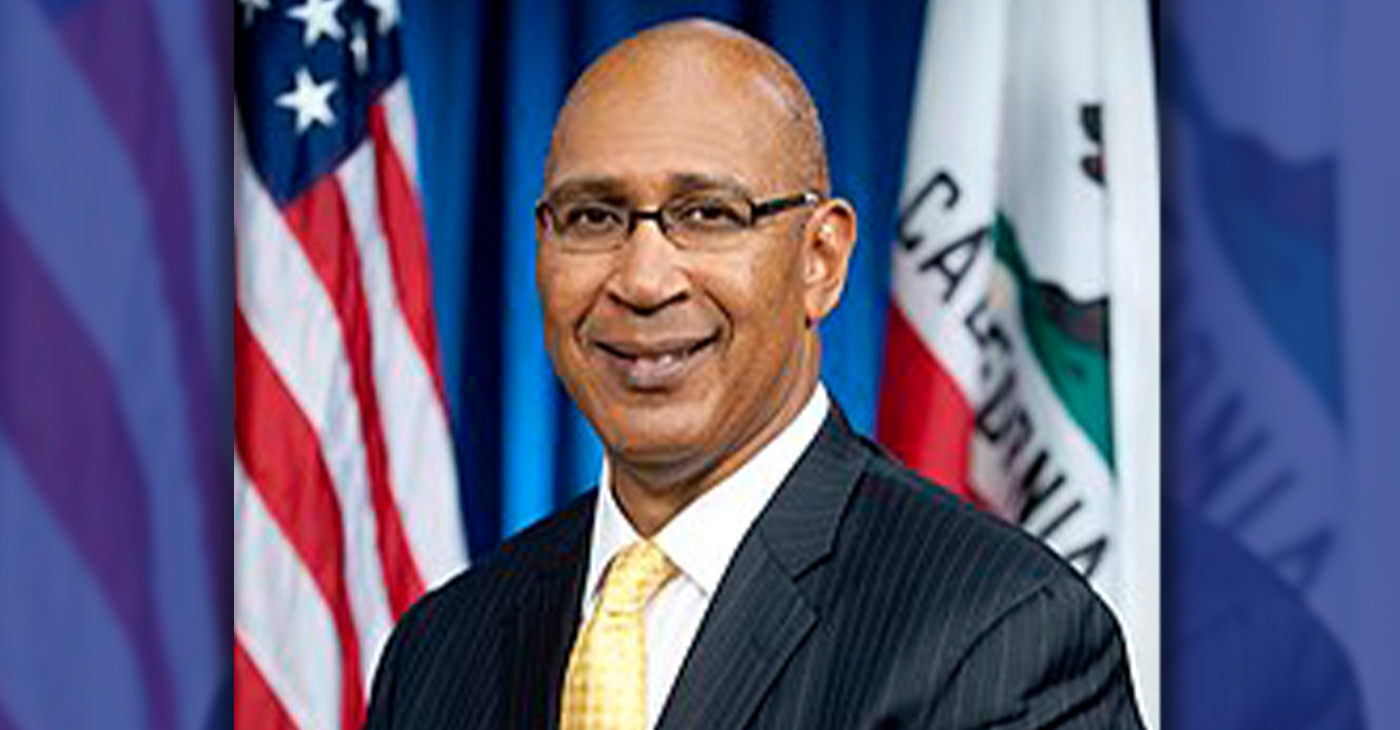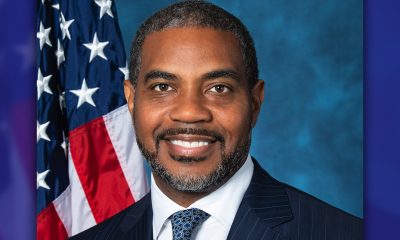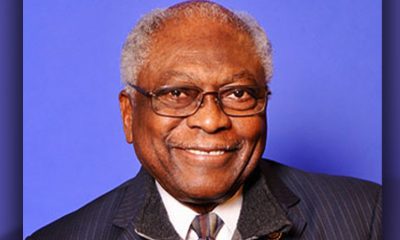Health
Non-English Speakers Face Health Setback If President Trump Loosens Language Rules

A federal regulation demands that certain health care organizations provide patients who have limited English skills a written notice of free translation services.
But the Trump administration wants to ease those regulations and also no longer require that directions be given to patients on how they can report discrimination they experience.
The changes could save $3.16 billion over five years for the health care industry, according to the administration.
These changes are part of a broader proposed regulation that would roll back protections banning discrimination based on gender identity. The public comment period closes Aug. 13.
The proposal would not change the government’s requirements that insurers and medical facilities provide foreign language translators and interpreters for non-English speakers.
The government acknowledged in the proposal that the change would lead to fewer people with limited English skills accessing health care and fewer reports of discrimination. But it also questioned the need for these notices, pointing out that in some areas health organizations spend money to accommodate a small contingent of language speakers. For example, notices in Wyoming must account for the 40 Gujarati speakers — a language of India — in the state.
In all, the government said, the impact of doing away with these requirements would be “negligible.”
Others disagree.
“I haven’t seen any reason to believe that this will only have a negligible impact,” said Mara Youdelman, managing attorney for the Washington, D.C., office of the National Health Law Program, a civil rights advocacy group. She said it “will likely result in people just not knowing their rights but not accessing care to which they’re eligible.”
Regulations under Section 1557 of the Affordable Care Act require insurers, hospitals and others to include a “tagline” of free translation services for the 15 languages that are most prevalent in a state. Additionally, it requires a nondiscrimination clause and directions on how to file a complaint with the Department of Health and Human Services Office for Civil Rights.
This information must be posted on websites, in physical spaces and in “significant communications” to the patient. But the ambiguity of that phrase prompted health care organizations to post the required information on numerous pieces of material — such as a separate page about language options sent with each Explanation of Benefits statement from an insurer. Together, these efforts cost organizations billions of dollars.
“No one realized exactly what that definition of ‘significant communication’ — how much would be wrapped up in that,” said Katie Keith, a Georgetown University professor who specializes in the ACA.
An estimated 25.9 million people in the United States in 2017 had limited English proficiency, the Census Bureau reported. Patients facing language barriers have a higher risk of health care complications, such as surgical infections and falls, because they may misunderstand a doctor’s orders, make mistakes preparing for procedures or improperly use medications.
In this latest proposal, however, the federal government questions whether the written notices are needed. The majority of enrollees speak English — census data from 2017 showed that 91.5% of people over age 5 spoke only English at home or spoke the language “very well.” In certain states, the proposal claims, every enrollee receives a notice for translation services in a language that only a few dozen people speak in the area.
Other state and federal laws protect the rights of patients with limited language services, the proposed rule says. It also cites evidence of some enrollees not liking the extra forms and being less inclined to open their mail because of them.
“These complaints make us concerned that the Section 1557 Regulation has resulted in ‘cognitive overload,’” the document stated, “such that individuals experience a diminished ability to process information” because of the additional paperwork.
Anecdotal reports cited by the government also point out that the notices did not significantly increase the number of patients using language services and reporting complaints. However, the proposed rule also estimates at least 90% of hospitals and physicians were not complying with the requirements.
Youdelman admitted she does not have concrete data showing that these taglines translate to increased access to services. However, she added, removing them wholesale without a promise to prevent discrimination in a different way is also counterproductive.
“Eliminating taglines is not the correct solution,” Youdelman said. “There is a way to inform folks while being cost-conscious.”
Activism
Oakland NAACP President Stands on the Frontlines for Equity
With education as a cornerstone, Adams emphasized the importance of youth having access to quality kindergarten through 12th-grade education along with college or vocational programming beyond high school. “I feel that it’s so important for our children to get a good education in K-12th grade, along with the colleges of their choice, especially with the HBCU’s (Historically Black Colleges and Universities).”

By Carla Thomas
For Cynthia Adams, president of the Oakland chapter of the NAACP, fighting for the rights of Black people comes naturally. With southern roots in Arkansas, Adams experienced firsthand the injustice and unfairness of racism.
“Growing up in the Jim Crow South, I experienced the unfair treatment of people of color and how faith can inspire communities to bring about positive and long-lasting change,” said Adams. Adams says a combination of her family and faith has kept her strong in the face of adversity and inspired her life’s work of advocacy.
Adams chose education as a career path — and a means to achieve equity and overcome racism. She earned her bachelor’s degree at the University of Arkansas at Pine Bluff and later received an advanced degree from California State East Bay.
Adams’ experience as an Oakland Unified School District (OUSD) recorder, a counselor, a researcher, and a college recruiter has allowed her to be laser-focused on youth. She also served as the chairperson for the Oakland NAACP youth.
“The mission of the National Association for the Advancement of Colored People is to ensure the political, educational, social, and economic equality of rights of all persons and to eliminate race-based discrimination. We want to ensure our citizens have equal rights and opportunities without discrimination based on race.”
As a partner with the State of California’s Stop the Hate campaign, Adams says the initiative is a step in the right direction. “It’s great that our governor and state created the Stop the Hate campaign and provides resources for victims of racism and other hate crimes,” said Adams. “The racism toward Black people has increased and our children are being targeted,” she continued.
“We, at the Oakland branch, created a declaration on racism that will amplify the needs of our community to combat racism,” continued Adams. “That declaration was adopted nationally.”
Bridging communities and collaborating is also a strategy for moving society toward justice, according to Adams.
“Through the NAACP, we build connections between communities and advocate for the rights of historically marginalized and oppressed individuals,” said Adams. “Collective action is the only way to advance civil rights and promote social equity.”
With education as a cornerstone, Adams emphasized the importance of youth having access to quality kindergarten through 12th-grade education along with college or vocational programming beyond high school. “I feel that it’s so important for our children to get a good education in K-12th grade, along with the colleges of their choice, especially with the HBCU’s (Historically Black Colleges and Universities).”
By taking stands on supporting former Oakland Police Chief LeRonne Armstrong to supporting the recall of a mayor faced with a scandal that brought negative national press to the city of Oakland, Adams has always demanded more for her people, and better for Oakland, the city she calls home.
She expressed pride in the national organization’s announcement of a $200 million fund designed to empower Black funders nationwide. “We all know the health of a community begins with economics,” said Adams.
Adams says that strengthening Black businesses automatically sustains a community. “We’ve also got to educate our community on opportunities and teach our children critical thinking so that they can provide the next generation of solutions for society,” said Adams.
Activism
January Is Mental Wellness Month
Mental illness affects people differently. Children ages 6-17 are three times more likely to repeat a grade if they have mental, emotional, developmental, or behavioral problems. Those with severe mental illness have a life span of 10 to 25 years shorter than the general population. 64% of jail inmates have a mental illness compared to 21.6% of the general adult population.

By Scott Knight
January is a time to recharge and recover from the holidays. It is also National Mental Wellness Month, which recognizes the importance of mental health and aims to reduce the stigma associated with mental illness.
According to the National Institutes of Health, 57.8 million adults lived with some form of mental illness in 2023. The severity varies from person to person. Understanding mental health statistics in the U.S. can raise awareness and garner support for those in need.
Anxiety disorders are the most common form of mental illness and women are more likely than men to experience depression. 17% of adolescents ages 12-17 experienced a major depressive episode. And 33.5% of adults with living with a mental illness also has a substance use disorder.
The Substance Abuse and Mental Health Services Administration (SAMHSA) collects data on substance use and mental health. Their 2023 National Survey on Drug Use and Health reported that multiracial people had the highest rate of mental illness at 36.7%, followed by Whites (24%), American Indian/Alaskan natives (23.5%), Hispanics (20.6%), Blacks (19.4%), and Asians (18.1%).
Mental illness affects people differently. Children ages 6-17 are three times more likely to repeat a grade if they have mental, emotional, developmental, or behavioral problems. Those with severe mental illness have a life span of 10 to 25 years shorter than the general population. 64% of jail inmates have a mental illness compared to 21.6% of the general adult population.
National Mental Wellness Month involves highlighting the resources available to equip individuals with the capacity to cope with life’s difficulties; have healthy relationships and take care of their mental well-being before issues arise.
Wellbeingtrust.org tells us that having a purpose in life offers many benefits, including being happier, living longer, sleeping better, and improved heart health. To find that purpose explore your interests, volunteer, consider what you love to do, talk to friends and family, and try new experiences.
The National Alliance on Mental Illness reports that 46% of people who die by suicide had a known mental illness.
The Jason Foundation is a valuable resource if you feel that a friend or loved one is struggling with a mental illness. JFI is dedicated to the awareness and prevention of suicide through educational programs that equip youth, parents, educators, and the community with the tools and resources to identify and assist those who may be struggling mentally.
Visit www.jasonfoundation.com to learn how to make a difference and find the closest Jason Foundation Affiliate Office.
About the Author
Scott Knight is the Education Specialist at the Jason Foundation.
Activism
2024 in Review: 7 Questions for Former Assemblymember Chris Holden
While in office, Holden championed efforts to improve education outcomes for students and advocated for social and racial justice. Legislation he wrote or sponsored also focused on, innovation in transportation, protecting developmental disability service providers and improving public health, more broadly.

By Edward Henderson, California Black Media
In 2012, Assemblymember Chris Holden was first elected to the California State Assembly representing the 41st District in the San Gabriel Valley.
He was re-elected to that position for the following four terms.
While in office, Holden championed efforts to improve education outcomes for students and advocated for social and racial justice. Legislation he wrote or sponsored also focused on, innovation in transportation, protecting developmental disability service providers and improving public health, more broadly.
Holden, a graduate of San Diego State University, lives in Pasadena with his wife, Melanie, and children Nicholas, Alexander, Austin, Mariah and Noah. Holden is the son of former State Senator and LA City Councilmember Nate Holden.
Before he closed out his final year of service in the Assembly, California Black Media (CBM) spoke with Holden. He reflected on his accomplishments this year and his goals moving forward.
Looking back at 2024, what stands out to you as your most important achievement and why?
A project I’ve been working on for well over 36 years — the light rail system — made its way into Pasadena from downtown LA. Now it’s making its way through the San Gabriel Valley to Pomona.
How did your leadership and investments contribute to improving the lives of Black Californians?
Having an opportunity to represent a multi-ethnic and diverse district is exciting, but to be able to bring a voice for a lived African American experience from the San Gabriel Valley is very important.
What frustrated you the most over the last year?
I still am frustrated that we aren’t seeing the kind of progress on affordable housing to allow underrepresented communities to be able to afford to live in the community that they grew up in.
What inspired you the most over the last year?
There has been a lot of movement around reparations through community engagement. Dr. Shirley Weber put forth the bill to establish a reparations task force and that task force met for a number of years. Two members of our caucus served on it, Sen. Steven Bradford and Assemblymember Reggie Jones-Sawyer. A thousand-page report and a hundred recommendations or more came out of that. And now we’re in the process of finding ways to implement some of those recommendations. It’s going to be a longer process, but I’m hopeful because California, once again, is on the front end of taking on a really challenging issue.
What is one lesson you learned in 2024 that will inform your decision-making next year?
Always be mindful how quickly the winds can change. We’ve gone from 10 years of having budget surpluses to this year having a $45 billion deficit.
In one word, what is the biggest challenge Black Californians face?
Inequality.
What is the goal you want to achieve most in 2025?
Well, I won’t be in the legislature in 2025, but I love public policy. I’d like to find myself in a position where I’m continuing to have an influence on how public policy is shaped and formed. I’m just looking forward to being a vital voice going into next year in a different role. It will also be an opportunity to lay a foundation to take another run, possibly for a seat on the LA County Board of Supervisors in 2028.
-

 Activism3 weeks ago
Activism3 weeks agoBooks for Ghana
-

 Arts and Culture3 weeks ago
Arts and Culture3 weeks agoPromise Marks Performs Songs of Etta James in One-Woman Show, “A Sunday Kind of Love” at the Black Repertory Theater in Berkeley
-

 Bay Area2 weeks ago
Bay Area2 weeks agoGlydways Breaking Ground on 14-Acre Demonstration Facility at Hilltop Mall
-

 Activism3 weeks ago
Activism3 weeks ago‘Donald Trump Is Not a God:’ Rep. Bennie Thompson Blasts Trump’s Call to Jail Him
-

 Activism2 weeks ago
Activism2 weeks agoLiving His Legacy: The Late Oscar Wright’s “Village” Vows to Inherit Activist’s Commitment to Education
-

 Alameda County2 weeks ago
Alameda County2 weeks agoAC Transit Holiday Bus Offering Free Rides Since 1963
-

 Activism4 weeks ago
Activism4 weeks agoOakland Post: Week of December 11 – 17, 2024
-

 #NNPA BlackPress3 weeks ago
#NNPA BlackPress3 weeks agoCalifornia, Districts Try to Recruit and Retain Black Teachers; Advocates Say More Should Be Done
























































